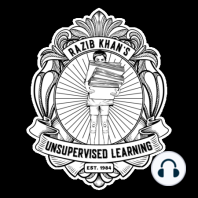80 min listen

David Anthony: when we were Yamnaya
David Anthony: when we were Yamnaya
ratings:
Length:
81 minutes
Released:
Sep 24, 2023
Format:
Podcast episode
Description
1 in 36 children in the US have Autism Spectrum Disorder, but did you know that 20-30% have a known genetic cause for their condition? Read more about how, for the first time, parents can use Orchid’s whole genome sequencing to screen their embryos for these genetic variations, and mitigate their baby’s risk of disease. Check them out at orchidhealth.com, and use code RAZIB when signing up to skip the waitlist. Today, Razib revisits The Horse, the Wheel, and Language with David Anthony, emeritus professor at Hartwick College and collaborator with David Reich’s ancient DNA research group at Harvard University. Anthony and Razib survey the last two years in terms of questions regarding the domestication of the horse, the spread of the wheel, and Yamnaya steppe herders' language; subjects of his 2007 book. They also discuss the exponential growth in our understanding of the paleodemography of Bronze Age Eurasian nomads since 2015’s publication of Massive migration from the steppe was a source for Indo-European languages in Europe, a study for which Anthony provided many of the samples. Razib asks Anthony how his understanding of the rise of Indo-Europeans has or has not changed, in the wake of new data and novel interpretations over the last two years. Anthony reiterates the broad outlines he has been proposing for decades: the Yamnaya nomads of the Bronze-Age Eurasian steppe were the proto-Indo-Europeans, full stop. He also addresses those who argue for the Corded Ware culture of East-Central Europe being considered a sister, as opposed to a daughter, culture of the Yamnaya. Anthony points out that analysts in Reich’s group have discovered individuals who are apparent relatives between the Yamnaya and Corded Ware, indicative of a close and tight bond. Like the Danish archaeologist Kristian Kristiansen, Anthony believes that the pastoralist people who invaded Northern Europe 5,000 years ago should be thought of as fundamentally Yamnaya. He also addresses those skeptical of Yamnaya origins, positing perhaps some discomfort with the idea that modern people descend from warlike nomadic groups. Finally, Razib presses Anthony about new theories regarding more detailed structure of early Indo-European migrations. Does he accept the contention that most Indo-European groups descend from the Corded Ware, while Armenians, Greeks, Tocharians and Illyrians descend from the Yamnaya directly? What more elements to the narrative are going to be added beyond the broad assertion that the Yamnaya were the proto-Indo-Europeans? Related podcasts: David Anthony: the origin of Indo-Europeans, Thomas Olander: the origin and spread of Indo-European languages, James P. Mallory: finding the Indo-Europeans and Kristian Kristiansen: the birth of Northern Europe. Selected publications: The genetic history of the Southern Arc: A bridge between West Asia and Europe Population genomics of bronze age Eurasia Massive migration from the steppe was a source for Indo-European languages in Europe The origins and spread of domestic horses from the Western Eurasian steppes Language trees with sampled ancestors support a hybrid model for the origin of Indo-European languages
Released:
Sep 24, 2023
Format:
Podcast episode
Titles in the series (100)
Tom Booth: Cheddar Man and Beyond: Tom Booth is an English archaeologist who has had great timing in his career, as he’s been riding the massive wave of ancient DNA findings out of Britain over the past decade. https://www.ncbi.nlm.nih.gov/pmc/articles/PMC6520225/ by Razib Khan's Unsupervised Learning